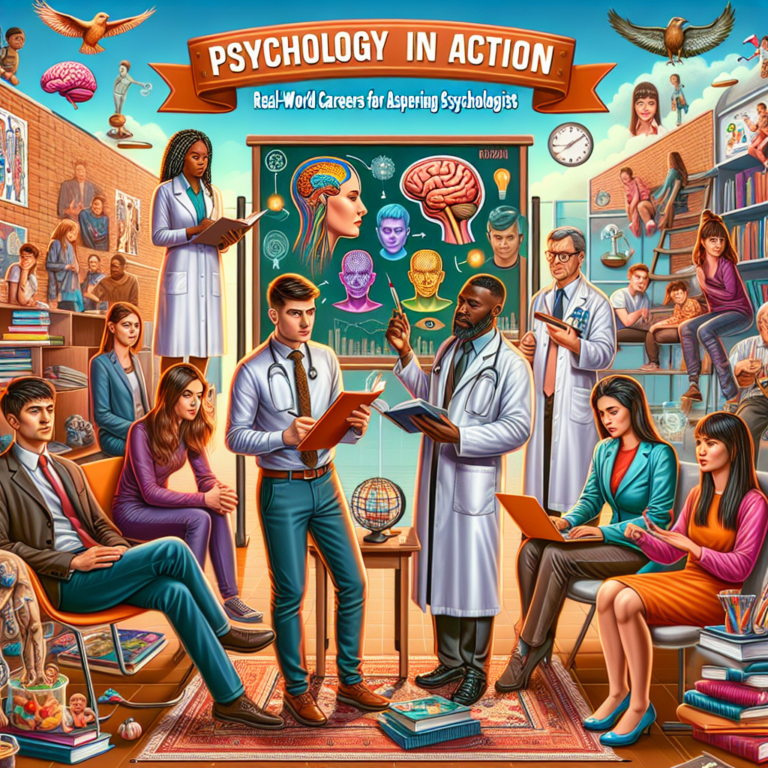
Did you know the demand for mental health workers is growing fast? The Bureau of Labor Statistics says there will be a 22% growth in jobs for therapists from 2020 to 2030. This shows we really need more people interested in therapy. Even though you need a master’s degree to be a licensed therapist, a bachelor’s degree in psychology can help you start.
Looking into psychology degree options shows many psychology career paths. A bachelor’s degree might not let you work as a licensed therapist right away. But, it can open doors to psychology bachelor jobs in other fields. This gives you a solid base for more education later on.
Key Takeaways
- A bachelor’s degree in psychology is a good starting point for a career in therapy.
- To become a licensed therapist, a master’s degree is typically required.
- Psychology graduates can explore various career paths related to therapy.
- Understanding the educational requirements is key for aspiring therapists.
- Licensing rules differ by state, which affects your career choices.
The Reality of Therapy Careers with a Bachelor’s Degree
Getting a job in therapy with just a bachelor’s degree in psychology needs clear understanding. A bachelor’s degree gives a good start in understanding human behavior and psychology. But, it’s key to know the differences between therapy, counseling, and psychology, and the legal and ethical rules.
Understanding Therapy vs. Counseling vs. Psychology
“Therapy,” “counseling,” and “psychology” are often mixed up, but they mean different things in mental health. The American Psychological Association says a therapist is trained to treat mental or physical issues. Counseling helps with specific problems like career choices or stress. Psychology covers a wide range, including research and treating mental illnesses.

Legal and Ethical Considerations
Licensing for therapists changes by state and job, so knowing the legal and ethical sides is key. The American Psychological Association says getting licensed is a big step for psychologists or therapists. It’s also important to follow ethical rules like keeping client secrets and getting consent.
“The primary responsibility of a therapist is to provide a safe and non-judgmental environment for their clients.”
Knowing these ethics is critical for anyone wanting to work in therapy.
If you have a bachelor’s in psychology, it’s important to understand the psychology counseling path and what’s needed for psychology graduate school. While you might find psychology entry-level jobs, moving up usually means more school. Also, knowing the psychology bachelor salary and how it stacks up against other jobs is important.
Educational Requirements for Licensed Therapists
To become a licensed therapist, you need to invest in education and training. The journey starts with undergraduate studies and goes up to advanced degrees and specialized training.
Bachelor’s Degree: Just the First Step
A bachelor’s degree in psychology or a related field is the first step. It’s not enough to become a licensed therapist, though. Undergraduate programs teach the basics of psychology, research, and statistics.
Students learn about abnormal psychology, developmental psychology, and counseling. This foundation is key for graduate studies.
Master’s and Doctoral Programs in Therapy Fields
To become a licensed therapist, you usually need a master’s degree in counseling, social work, or marriage and family therapy. These programs take two to three years and include coursework and clinical experience.
Some roles, like licensed psychologists, require a doctoral degree (Ph.D. or Psy.D.). These degrees take four to six years after the master’s. Doctoral programs include advanced coursework, research, and clinical training.
Specialized Training and Certifications
Licensed therapists often get specialized training and certifications. These can be in specific therapies, like cognitive-behavioral therapy or trauma-informed care. They can also focus on working with certain groups, like children or older adults.
These extra qualifications help therapists provide better care. They also make therapists stand out in the job market.

What You Can Do with Only a Bachelor’s in Psychology
A bachelor’s degree in psychology doesn’t mean you can’t work in mental health. You can find jobs in mental health organizations, research places, and social services. These fields are open to psychology graduates.
Support Roles in Therapeutic Settings
With a psychology degree, you can help in mental health clinics or hospitals. You might do tasks like keeping records, helping with intake, or supporting treatment plans. Key tasks include keeping patient records, handling intake, and supporting treatment plans.

Case Management Positions
Case management is another good career choice. You’ll work with clients, assess their needs, and help them find resources. Good case managers need to communicate well and know how to use social services. They work in social services, healthcare, or non-profits.
Research Assistant Opportunities
Psychology graduates can also be research assistants. They help with data, studies, and reviews. Research experience is great for those thinking about more education in psychology. Assistants help grow our understanding of psychology and develop new treatments.
| Role | Primary Responsibilities | Work Setting |
|---|---|---|
| Support Roles | Administrative tasks, patient care, program coordination | Mental health clinics, hospitals |
| Case Management | Client assessment, treatment planning, resource connection | Social services, healthcare, non-profit |
| Research Assistant | Data collection, study coordination, literature review | Academic, clinical settings |
These jobs show the many paths a psychology degree can lead to. Even without being a licensed therapist, you can make a big difference in mental health and psychology.
Psychology Bachelor’s Careers: The Complete Landscape
A bachelor’s degree in psychology opens many career doors. You can work in mental health, human resources, and social services. A psychology degree lets you explore different fields, using your knowledge of human behavior.
Mental Health Technician
Mental health technicians help under licensed therapists and psychologists. They assist patients with mental health issues. They observe patient behavior, support during therapy, and help with daily tasks. It’s a great job for those interested in mental health but not ready to be licensed therapists.
Behavioral Health Specialist
Behavioral health specialists help people and groups adopt healthy lifestyles. They work in hospitals, clinics, or community groups. They need strong communication skills and can design effective health programs.
Human Resources Roles
Psychology graduates can work in human resources. They might focus on recruitment, employee relations, or training. They use psychology to improve work environments and manage conflicts.
Social Services Coordinator
Social services coordinators help clients find community resources. They work in non-profits, government, and healthcare.
“The role of a social services coordinator is key in helping people and families get the support they need.”
This job needs good organizational skills and the ability to talk to different people.
These are just a few jobs for psychology bachelor’s graduates. Knowing the wide range of psychology careers helps you choose your path.
Salary Expectations with a Psychology Bachelor’s
Salaries for those with a psychology bachelor’s degree vary a lot. This depends on the job and where you work. It’s important to know this if you’re thinking about a career in psychology.
Entry-Level Position Compensation
At the start, psychology graduates can find jobs in therapy or case management. The Bureau of Labor Statistics says psychological assistants make about $30,000 to $40,000 a year. But, salaries can change based on who you work for, where you are, and what you do.
Here are some entry-level jobs and their salary ranges:
- Psychological assistant: $30,000 – $40,000
- Case manager: $35,000 – $45,000
- Mental health technician: $28,000 – $38,000
Geographic Salary Variations
Where you live affects how much you can earn. Cities and places with high living costs often pay more. For example, jobs in New York or San Francisco might pay better than in smaller towns.
Comparing Psychology Bachelor’s Salaries to Other Fields
It’s good to compare psychology salaries to other fields. Psychology graduates might not earn as much as some STEM fields at first. But, their salaries are competitive with social sciences and humanities.
| Field | Average Entry-Level Salary |
|---|---|
| Psychology | $35,000 |
| Sociology | $32,000 |
| Business Administration | $40,000 |
Knowing about these salary trends helps psychology graduates make better career choices. It can also guide decisions about further education.
The Path to Becoming a Licensed Therapist
Becoming a licensed therapist takes several important steps. It requires a lot of time, effort, and dedication. But, it can be a very rewarding career helping others.
Graduate School Requirements and Preparation
The first step is getting a graduate degree in a field like Master’s in Counseling or Clinical Psychology. Graduate programs in psychology give you the basics needed for therapy. When picking a program, look at accreditation, curriculum, and specializations.
To get ready for grad school, keep a good academic record. Also, get experience through internships or volunteer work. You’ll need strong letters of recommendation and a personal statement about your career goals.
Supervised Clinical Hours
After grad school, you need supervised clinical hours. These hours let you work with clients under a licensed pro’s watch. The number of hours needed varies by state, usually between 2,000 to 4,000.
Supervised clinical experience is key for learning and growing. It lets you use what you learned in real life and get feedback from pros.
State Licensing Examinations
The last step is passing a state licensing exam. These exams check your knowledge and skills in areas like assessment and treatment planning. Each state has its own exam, like the NCMHCE or EPPP.
To get ready for the exam, know the format, content, and scoring. Many people take exam preparation courses or join study groups to feel more ready.
Types of Therapy Licenses and Credentials
The therapy field has many licenses and credentials. They cater to various specializations and educational levels. Knowing these is key for those looking to start a therapy career.
Licensed Professional Counselor (LPC)
A Licensed Professional Counselor (LPC) can offer mental health services. They help clients with issues like anxiety and depression. To become an LPC, you need a master’s degree, supervised experience, and pass a licensing exam.
Licensed Marriage and Family Therapist (LMFT)
Licensed Marriage and Family Therapists (LMFTs) focus on family and relationship issues. They need a master’s degree, supervised experience, and pass a licensing exam to become an LMFT.
Licensed Clinical Social Worker (LCSW)
Licensed Clinical Social Workers (LCSWs) provide mental health services. They work in hospitals and clinics. To become an LCSW, you need a master’s degree, supervised experience, and pass a licensing exam.
Psychologist vs. Therapist Credentials
The terms “psychologist” and “therapist” are often mixed up. But, they mean different things in different places. Psychologists have a doctoral degree and offer many services. Therapists have various credentials like LPC, LMFT, or LCSW, based on their education and focus.
| Credential | Typical Education | Specialization |
|---|---|---|
| LPC | Master’s in Counseling | Mental Health Services |
| LMFT | Master’s in Marriage and Family Therapy | Couples and Family Therapy |
| LCSW | Master’s in Social Work | Mental Health Services |
| Psychologist | Doctoral in Psychology (Ph.D. or Psy.D.) | Psychological Services |
It’s important to know the different therapy licenses and credentials. This helps aspiring therapists choose the right path for their career goals and specialization.
Bridging the Gap: From Bachelor’s to Therapy Practice
Starting a career in therapy with a bachelor’s in psychology requires understanding the steps needed. You must look at several important factors that will guide your path.
Gaining Relevant Experience After Graduation
Getting relevant experience is key to becoming a therapist. After you graduate, you can volunteer or intern at places like mental health organizations or clinics. This hands-on experience is vital, as shown by a survey by the American Psychological Association.
Some ways to get experience include:
- Volunteering at crisis hotlines or support groups
- Assisting in research studies related to psychology
- Working as a mental health technician or case manager
Dr. Jane Smith, a clinical psychologist, says, “Diverse experiences in different settings broaden your understanding and help you find your specialty.”
Choosing the Right Graduate Program
Finding the right graduate program is critical for your goal of becoming a therapist. Look at the program’s curriculum, clinical opportunities, and if it’s accredited. A good program should mix theory and practice.
| Program Aspect | Key Considerations |
|---|---|
| Curriculum | Coursework in counseling theories, psychopathology, and research methods |
| Clinical Opportunities | Internships, practicum, or fieldwork experiences |
| Accreditation | Recognition by the American Psychological Association (APA) or Council for Accreditation of Counseling and Related Educational Programs (CACREP) |
Financing Your Advanced Education
Financing your graduate studies can be tough. But, there are scholarships, grants, and assistantships to help. Start looking into these options early in your application process.
“The key to financing your education is to apply early and often, exploring all available avenues from federal aid to private scholarships.”
By planning well and taking these steps, you can move from a bachelor’s degree in psychology to a fulfilling career in therapy.
Alternative Paths in the Helping Professions
There are many ways to help others with a psychology background, outside of being a licensed therapist. These jobs use the skills learned in college to help people and communities. They are meaningful and rewarding.
Life Coaching Opportunities
Life coaching is a field that’s growing fast. It lets people help others reach their goals. Life coaches help clients get past obstacles and find success. Getting certified can make you more credible and open up more job chances.
Peer Support Specialist Roles
Peer support specialists help others who face mental health issues. They offer emotional support and share ways to cope. They also help people find community resources. Training is available to prepare for this role.
Health Education and Community Outreach
Jobs in health education and outreach aim to spread mental health awareness. They create educational programs and work with communities. These roles are in schools, centers, and non-profits, helping many people.
Exploring these paths can lead to fulfilling careers for psychology graduates. They offer many ways to make a difference. By looking into these options, you can find a job that fits your skills and values.
Psychology BA vs. BS: Does It Matter for Therapy Careers?
Aspiring therapists often wonder if their undergraduate degree matters. The choice between a Bachelor of Arts (BA) and a Bachelor of Science (BS) in psychology can affect their career and graduate school chances.
Curriculum Differences and Their Impact
A BA in psychology includes more humanities and liberal arts, like foreign languages and history. A BS, on the other hand, focuses on science and math, including statistics and biological sciences. This difference can shape a student’s readiness for graduate school and their career.
A BS might prepare students better for research graduate programs because of its scientific focus. A BA, with its broader liberal arts education, could be better for those interested in psychology’s holistic aspects.
Graduate School Preferences
Graduate school admissions can vary in their preference for BA or BS holders. Some programs might prefer BS degrees for their scientific base. Others might not care as long as the student meets the prerequisites.
- Research Experience: Both BA and BS students can gain from research, but BS programs might offer more chances due to their research focus.
- Prerequisite Courses: It’s key to finish all needed courses, regardless of the degree held.
In summary, while the choice between a BA and BS in psychology can affect graduate school and career paths, it’s not everything. Students should think about their interests, career goals, and the specific needs of their desired graduate programs when deciding.
Building a Career Plan with a Psychology Bachelor’s
Creating a career plan with a psychology bachelor’s degree needs a strategic approach. It involves understanding the different psychology career paths and matching them with your goals.
Short-Term Career Goals
Setting short-term career goals is key for psychology graduates. These goals should be reachable in a few years after graduation. Roles like mental health technicians or case managers are good starting points. To reach these goals, get relevant experience through internships or volunteer work.
Some entry-level positions include:
- Mental Health Technician
- Case Manager
- Research Assistant
Long-Term Educational Planning
If you want to be a licensed therapist, long-term educational planning is a must. This usually means getting a master’s or doctoral degree. When looking at graduate school, think about program accreditation, curriculum, and clinical opportunities.
Networking and Professional Development
Networking and professional development are key to a successful career plan. Go to industry conferences, join professional groups, and use online forums to grow your network. Also, think about getting certifications or specialized training to boost your job chances.
By focusing on these areas, psychology bachelor’s degree holders can make a detailed career plan. This plan will match their goals and aspirations.
Common Misconceptions About Psychology Careers
Many think you can be a licensed therapist right after college. But, the path is more complex and detailed.
The “Therapist Right After College” Myth
Getting a bachelor’s in psychology doesn’t mean you’re ready to be a therapist. You need advanced degrees and lots of experience to become licensed.
Expectations vs. Reality in the Field
Psychology graduates often have big dreams, but reality can be different. Knowing the job market and what you need to get there is key.
Understanding the Mental Health Job Market
The mental health job world is full of different roles and needs. It’s important to know about psychology job requirements and therapy with psychology degree chances.
Clearing up myths and understanding psychology industry careers and the mental health job market helps you make better career choices.
Conclusion: Making Informed Decisions About Your Psychology Career Path
Choosing a career in psychology or therapy needs careful thought. You must consider education, career choices, and licensing. Knowing these helps you make smart choices for your psychology career paths and a rewarding career.
With a bachelor’s in psychology, you can find jobs like support roles, case management, or research assistant. But, to be a licensed therapist, you need more education and training.
Success in this field requires good career planning. Think about your goals now and in the future. Gain experience, pick the right graduate program, and figure out how to pay for it.
A career in psychology or therapy can be very fulfilling if you love helping others. By making smart choices and exploring therapy with psychology degree options, you can build a fulfilling and meaningful career.














